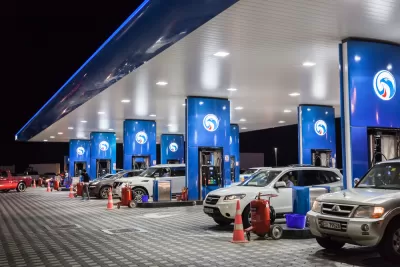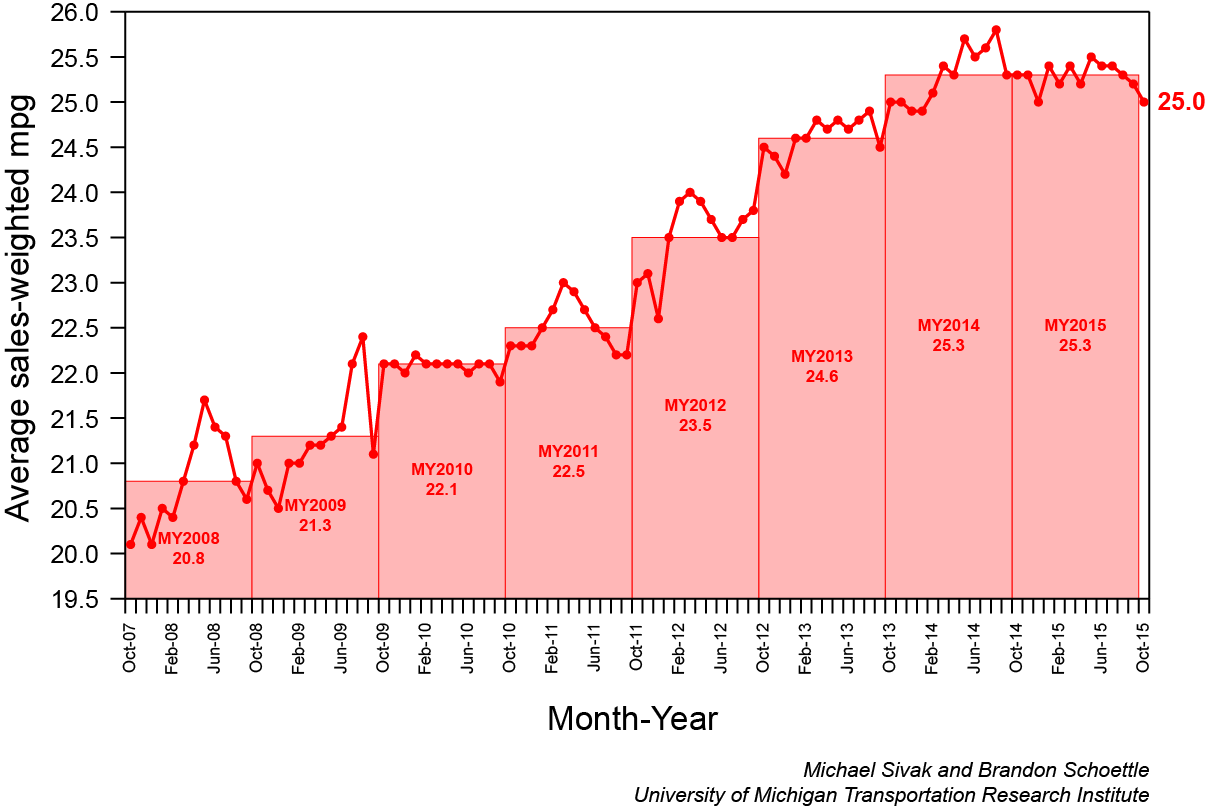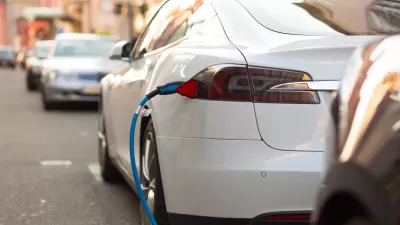New figures from the Federal Highway Administration show no abatement in increasing vehicle miles traveled (VMT). While low oil prices have been beneficial for the environment on the production end, it is wreaking havoc on the consumption side.

Low-priced oil played a major role in Royal Dutch Shell's decision in September to terminate Arctic oil exploration, their decision last month to end a huge oil sands development in Alberta, as well as being cited by President Obama on Friday as one reason to reject Transcanada Corp.'s application to build the 1,179-mile pipeline Keystone XL pipeline from Alberta to Nebraska:
"The pipeline would not lower gas prices for American consumers," stated the president. "The national average gas price is down about 77 cents over a year ago. It’s down a dollar over two years ago." [See related post].
However, low oil prices are producing opposing consequences on the consumption side by increasing demand for oil. Americans are driving more miles in less fuel-efficient vehicles and taking transit less often. AASHTO Journal reports on the latest federal mileage data, and they are cause to make OPEC cheer.
The Federal Highway Administration said its latest monthly "Traffic Volume Trends" report showed vehicle traffic on U.S. roadways reached 277.3 billion miles in August, a 2.3 percent gain from a year earlier and the most for any August on record.
That continues a trend of vehicles miles traveled growing on a year-over-year basis for 18 consecutive months and puts 2015 VMT on a pace to be the highest ever. The estimates include passenger vehicle, bus and truck travel.
While FHWA doesn't mention the correlation with low gas prices, Gas Buddy.com states it explicitly in their June 25 article: "A low fuel price environment clearly has jumpstarted new travel."
As for fuel efficiency, Dr. Michael Sivak, transportation researcher for University of Michigan Transportation Research Institute, has been reporting monthly on the fuel efficiency of vehicles purchased by consumers since 2007. Gas prices peaked in July 2014. The correlation is clear. From his Nov. 5 report:
The average fuel economy (window-sticker value) of new vehicles sold in the U.S. in October was 25.0 mpg—down 0.2mpg from September. This decline likely reflects the decreased price of gasoline in October, and the consequent increased sales of pickup trucks and SUVs. [Emphasis added].
Fuel economy is down 0.8 mpg from the peak reached in August 2014, but still up 4.9 mpg since October 2007 (the first month of our monitoring).
[Monthly updates found UMTRI Sustainable Worldwide Transportation]
The current oil market works against oil production that has high costs, but it is also increasing consumption. If "America is now a global leader when it comes to taking serious action to fight climate change," as President Obama proclaimed on Friday, he needs to recognize that notwithstanding increased fuel efficiency standards, low oil prices work against meeting his climate goals.
FULL STORY: FHWA Says Nation's Vehicle Mileage Continues Historic Climb for 18th Month

Maui's Vacation Rental Debate Turns Ugly
Verbal attacks, misinformation campaigns and fistfights plague a high-stakes debate to convert thousands of vacation rentals into long-term housing.

Planetizen Federal Action Tracker
A weekly monitor of how Trump’s orders and actions are impacting planners and planning in America.

In Urban Planning, AI Prompting Could be the New Design Thinking
Creativity has long been key to great urban design. What if we see AI as our new creative partner?

King County Supportive Housing Program Offers Hope for Unhoused Residents
The county is taking a ‘Housing First’ approach that prioritizes getting people into housing, then offering wraparound supportive services.

Researchers Use AI to Get Clearer Picture of US Housing
Analysts are using artificial intelligence to supercharge their research by allowing them to comb through data faster. Though these AI tools can be error prone, they save time and housing researchers are optimistic about the future.

Making Shared Micromobility More Inclusive
Cities and shared mobility system operators can do more to include people with disabilities in planning and operations, per a new report.
Urban Design for Planners 1: Software Tools
This six-course series explores essential urban design concepts using open source software and equips planners with the tools they need to participate fully in the urban design process.
Planning for Universal Design
Learn the tools for implementing Universal Design in planning regulations.
planning NEXT
Appalachian Highlands Housing Partners
Mpact (founded as Rail~Volution)
City of Camden Redevelopment Agency
City of Astoria
City of Portland
City of Laramie




























